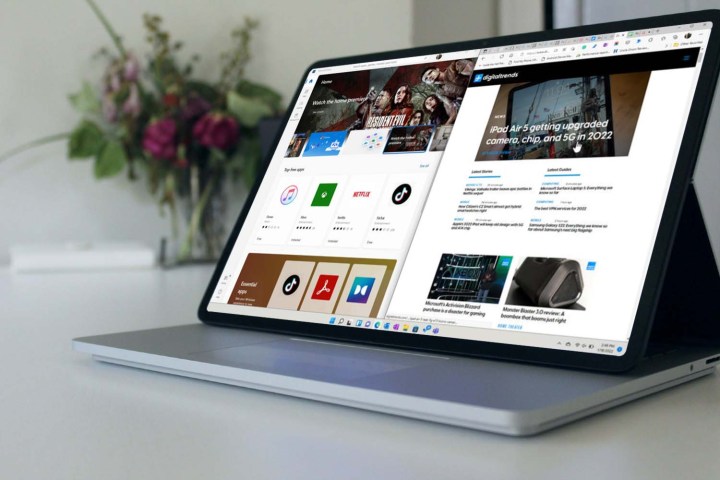Windows 11 released last fall and promised to be a new and refreshing update that tries to rid itself of the past. Unfortunately, it seems that Windows 11 adoption has been slowing in lieu of Windows 10 updates. That’s not always a bad thing and doesn’t necessarily mean Windows 11 is a failure, though.
AdDuplex, an ad network, released statistics on Windows 11 adoption based on their sampling of 60,000 computers running the software. The percentage of users who installed the Windows 10 21H2 update is at 21%. By contrast, almost 20% of Windows PCs have been updated to Windows 11 since its October release.

Comparing January to February 2022, Windows 11 usage went from 16.1% to 19.3%. That’s not a terrible percentage, but Microsoft was likely hoping for higher at this point. The company probably doesn’t have anything to worry about if history is any indication. According to Statista, Windows 10 reached 27% adoption across North America, Western Europe, and Asia Pacific in 2017, two years after Windows 10 released.
It has to be said that Windows 10 has proven to be incredibly popular, while Windows 11 has dealt with some controversy since its announcement. Microsoft wanted to increase the security posture of Windows 11 by requiring computers to support Trusted Platform Module (TPM) 2.0 encryption technology. This frustrated PC owners whose motherboards did not support TPM 2.0 despite having components well above the minimum specification required.
Outside of the security requirements, many people may not see any real reason to upgrade in the first place. Windows 10 will be officially supported until 2025 and doesn’t have the same system requirements as Windows 11. Though looks are subjective, some people may simply not like the newer design of Windows 11.
If your hardware does support it, there are plenty of reasons to upgrade to Windows 11 from Windows 10. Microsoft has increased the productivity features with a redesigned File Explorer, and new Snap Layouts truly come in handy when multitasking. There are also a bunch of quality of life improvements, like a sleeker Quick Settings and remembering where your apps were when you plug your PC into a monitor — not to mention the ability to install Android apps using the Amazon App Store.
Windows 11 isn’t even half a year old, so making doom and gloom predictions is premature at this stage.



